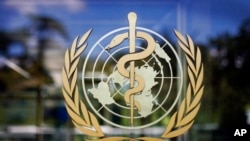ອົງການອະນາໄມໂລກ ຫຼື WHO ໄດ້ສະແດງຄວາມເປັນຫ່ວງໃນວັນຈັນວານນີ້ ກ່ຽວກັບ
ລາຍງານໃໝ່ ທີ່ວ່່າຢາວັກຊີນຕ້ານໄວຣັສໂຄໂຣນາ ອາດຈະບໍ່ໃຫ້ການປ້ອງກັນພຽງພໍຕໍ່
ພວກເຊື້ອພະຍາດທີ່ປັບຕົວໃໝ່.
ໃນວັນອາທິດແລ້ວນີ້ ອາຟຣິກາໃຕ້ໄດ້ຍົກເລີກການປຸກລະດົມໃນການສັກຢາ ວັກຊີນ
ຕ້ານໂຄວິດ-19 ຂອງຕົນ ຫຼັງຈາກການຄົ້ນຄວ້າໃໝ່ ໄດ້ເປີດເຜີຍວ່າ ຢາວັກຊີນອາສຕຣາ
ເຊເນກາ ມີປະສິດທິຜົນໜ້ອຍໃນການຕ້ານເຊື້ອໄວຣັສທີ່ ປັບຕົວໃໝ່ ທີ່ໄດ້ພົບຢູ່ໃນປະ
ເທດດັ່ງກ່າວ.
ໃນການຖະແຫຼງຢູ່ກອງປະຊຸມນັກຂ່າວໃນມື້ຕໍ່ມາ ຫົວໜ້າອົງການ WHO ທ່ານເຕໂດຣສ
ອາດານອມ ເກເບຣເຢຊຸສ ກ່າວວ່າ ການຕັດສິນໃຈນີ້ “ເປັນການ ເຕືອນວ່າພວກເຮົາຕ້ອງ
ເຮັດທຸກສິ່ງຢ່າງທີ່ເຮົາສາມາດ ເພື່ອຫລຸດຜ່ອນການໝູນ ວຽນຂອງເຊື້ອໄວຣັສດດ້ວຍມາດຕະການທາງດ້ານສາທາລະນະສຸກທີ່ໄດ້ຜົນ.”
ການຄົ້ນຄວ້າ ໂດຍມະຫາວິທະຍາໄລວິດວໍເຕີຣສ໌ແຣນ (Witwatersrant) ໃນ ນະຄອນ
ໂຈແຮນແນັສເບີກ (Johannesburg) ແລະຍັງບໍ່ທັນໄດ້ທົບທວນຢ່າງ ຖີ່ຖ້ວນເທື່ອລົງ
ຄວາມເຫັນວ່າ ຢາວັກຊີນຂອງອັງກິດໄດ້ໃຫ້ “ການປ້ອງກັນທີ່ຈຳ ກັດ ຕ້ານເຊື້ອພະຍາດ
ໃນຊະນິດທີ່ປານກາງ ທີ່ເກີດຈາກເຊື້ອພະຍາດ ທີ່ປັບຕົວ ໃໝ່ຂອງອາຟຣິກາໃຕ້ ຢູ່ໃນໝູ່
ພວກຊາວໜຸ່ມ.”
ຂ່າວດັ່ງກ່າວນີ້ ໄດ້ສ້າງຄວາມຜິດຫວັງ ໃຫ້ອາຟຣິກາໃຕ້ ທີ່ໄດ້ເຫັນຫຼາຍກວ່າ 46,000
ຄົນເສຍຊີວິດຍ້ອນໄວຣັສ. ອາຟຣິກາໃຕ້ມີແຜນຈະເລີ້ມສັກຢາວັກຊີນອາສຕຣາເຊເນກາ
ໃຫ້ແກ່ປະຊາຊົນຂອງຕົນ ນຶ່ງລ້ານໂດສ ໃນບໍ່ເທົ່າໃດວັນ ຈະມາເຖິງ. ແຕ່ວ່າການຄົ້ນຄວ້າພົບເຫັນວ່າວັກຊີນນີ້ ມີປະສິດທິຜົນພຽງ 22 ເປີເຊັນ
The World Health Organization expressed concern Monday over new reports that vaccines against the coronavirus may not sufficiently protect against new variants.
On Sunday, South Africa suspended its vaccination campaign against COVID-19 after a new study revealed that the AstraZeneca vaccine is less effective against a variant of the virus found in the country.
Speaking at a media briefing a day later, WHO Director-General Tedros Adhanom Ghebreyesus said at a media briefing that the decision is “a reminder that we need to do everything we can to reduce circulation of the virus with proven public health measures.”
The study, conducted by the University of the Witwatersrand in Johannesburg and not yet peer reviewed, concluded that the British vaccine offered only "limited protection against moderate forms of the disease caused by the South African variant, in young adults."
The news was a blow to South Africa, which has seen more than 46,000 people die from the virus. It had planned to begin inoculating its population with a million doses of the AstraZeneca vaccine in the coming days. But the study found that the vaccine was only 22% effective in moderate cases of the South African variant of the disease.
The study did not explore the vaccine’s effect against severe cases. The variant has been found in at least 32 other countries, including the United States.
AstraZeneca said Sunday it was developing another vaccine that would be more effective against the South African variant, which could be expected by this autumn.
But WHO’s chief scientist, Dr. Soumya Swaminathan, cautioned Monday that countries should not assume the AstraZeneca vaccine does not work, noting that all available evidence shows that vaccines reduce death, hospitalizations and severe disease.




